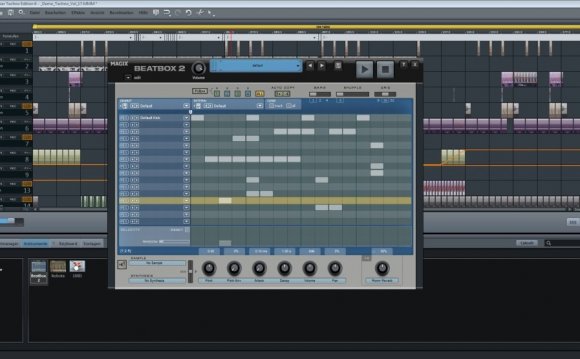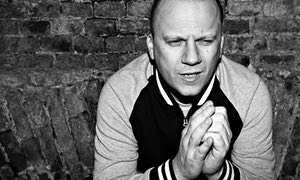
 DJ and producer Alexander Green's studio is 80per cent analogue and 20percent digital. 'you cannot beat a machine that is two decades old, where in actuality the circuits have actually degraded and has now a unique character, ' he claims.
DJ and producer Alexander Green's studio is 80per cent analogue and 20percent digital. 'you cannot beat a machine that is two decades old, where in actuality the circuits have actually degraded and has now a unique character, ' he claims.
Electronic music is more well-known than ever before and with it comes down a fascination for trying to recapture the original noise. Designers like Chic celebrity Nile Rodgers while the man which "invented party music", Giorgio Moroder, have been in the limelight once more. So, also, are their particular manufacturing strategies.
Modern gear could be inexpensive and convenient, but also for numerous, old hardware is the best way to go. One concept is the fact that motion of environment within old analogue machines gives a hotter, more healthy sound than compared to contemporary computer software, which, some state, sounds also "digitised".
"It is exactly about nostalgia, really, " said Mick Wilson, tech editor of DJ Mag. "men are sticking with analogue as the noise is gentler plus it brings some yesteryear in to the future, that will be something which cannot be achieved with brand-new apps and soft synths. Daft Punk recently returned to capture an album with those musicians just to capture that old feel. If you have a look at newer designers, like Skrillex, they use some very harsh sounding electronic gear."
Despite exactly what its enthusiasts claim, many commentators think most audience would-be hard pushed to listen to the essential difference between noises created by old equipment while the noises created by computers operating modern computer software that emulates all of them. One Berlin-based hardware manufacturer, Native Instruments, with seen product sales increase five-fold within the last four years, states that even the most practical drum and percussion sounds can be located on computer software that works on iPhones.
Despite this, producers are taking advantage of the love of old hardware. Korg features updated its instruments and Roland features launched brand new versions of their 808 and 909 drum machines, aswell its 303 bass synth – which was an essential area of the great majority of acid house paths. Sean Montgomery, senior product manager at Roland, stated: "The analogue vs digital discussion can be here and you'll never kindly everyone. After the day, also our TR-909, from 1983, perhaps one of the most coveted and iconic of all of the vintage machines, mixes analogue with electronic – the cymbals tend to be samples of real cymbals. We're utilizing modern technology which capable of recreating all of our heritage noises."
The resurgence in retrograde technology does not include retro prices though. A Roland 303 synth that when cost £100 in another hand store are now able to command £1000. Various Other classic electric apparatus can go for above £5000.
Another description for continued love affair with analogue is that it's one way to be noticeable such a competitive business. "If you are a producer and you are clearly choosing sounds off a computer willy nilly and the ones sounds tend to be very nearly infinite, your songs could lack personality if you're perhaps not focused on what you want to produce, " explained Adam Saville, songs editor of DJ Mag. "No one would like to be a flash inside pan."
Man Gerber, an Israeli DJ who uses both analogue and digital gear, said: "It is much easier to create songs than previously as you need not have any such thing, you just need a computer and software, but still to stand on actually effortless in every period.
"either you get it, or you cannot."
For most, the attraction of using vintage gear is founded on the allure of purchasing a bit of musical history versus exactly what kit actually plays a part in a track. But for the DJ and producer Alexander Green (aka Boddika), whoever studio is 80percent analogue, 20per cent digital, analogue is always well worth the money the noises it creates. "You can't overcome a machine that's two decades old where the circuits have actually degraded and possesses its personality. It may seem a little romantic however you cannot completely imitate analogue equipment with software. You just cannot, " he said. "I don't very know why it's, possibly it is the record behind the instruments, maybe it is the genuine sound of the machines. Or it's just me personally."
• The image with this story was changed on Sunday 16 February to better mirror the content associated with the article









